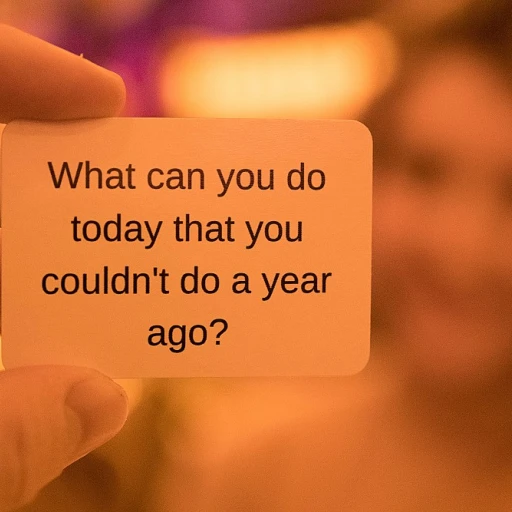
Defining a Working Interview
What is a Working Interview?
A working interview is a unique type of job interview where candidates perform actual job duties as part of the interview process. Unlike traditional interviews, where candidates discuss their skills and experiences, a working interview allows employers to assess candidate skills in a real-world setting. This type of interview is particularly common in fields like dental practices, where hands-on skills are crucial. During a working interview, candidates will engage in tasks that are representative of the role they are applying for, providing both the employer and the candidate with a clearer understanding of what to expect if hired.
Working interviews serve as a practical evaluation tool, helping employers fill positions with candidates who not only have the right qualifications but also fit well with the company culture and team dynamics. This approach can be beneficial for both parties, as it offers a more comprehensive view of the candidate's capabilities beyond what a resume or traditional interview might reveal.
For more insights on how working interviews can impact the interview process, you might find it helpful to explore understanding hostile environment sexual harassment in HR job interviews. This can provide additional context on the ethical considerations and potential challenges that might arise during such interviews.
Purpose and Benefits
The Goals and Advantages of a Working Interview
Working interviews are increasingly used by employers as part of the job interview process, offering both the company and the candidate a unique opportunity. The primary aim of these interviews is for employers to objectively assess a candidate's skills in real-time, beyond the traditional interview scenario. Here’s why they’re beneficial:
- Real-World Evaluation: Employers can see firsthand how candidates perform on job tasks that are typical for the role, giving a more accurate picture of their capabilities than a resume or personal interview might.
- Identifying Fit: Working interviews help determine if a candidate is a good match for the company culture and team. Both the employer and potential employee can gauge compatibility, which is crucial for long-term success.
- Pressure Test: These interviews replicate pressures of an actual work environment, testing how candidates manage stress and deadlines, crucial in fast-paced roles such as those in a dental practice.
- Clarification of Role: While conducting a working interview, candidates also gain a better understanding of what the job entails, allowing them to decide if the role aligns with their career goals and expectations.
- Skill Validation: Employers can verify job-specific skills, such as those required for dental hygienists, ensuring the candidate can meet the demands of the position.
- Enhanced Interview Process: Including working interviews complements traditional interviews, providing a richer, more comprehensive view of the candidate.
Despite the clear benefits, there are challenges and legal considerations that come with working interviews, such as how to handle compensation during this process. It's vital for both employers and candidates to be aware of these aspects to ensure the practice is transparent and fair for all parties involved.
Preparing for a Working Interview
Getting Ready for a Successful Experience
A working interview is a unique opportunity that allows a candidate to showcase their skills in a real-world setting, and preparation is key to making a great impression. Job seekers, particularly those in specialized fields like a dental practice, need to approach the working interview with a clear understanding of the company and the role. Here's how candidates can prepare effectively:- Research the Company and Role: Understanding the company culture, its goals, and its operational methods will give you a clearer picture of what to expect during the interview. This knowledge allows you to align your behaviors and work style with those of your potential employer.
- Clarify Job Duties: Before the interview, reach out to the hiring managers to ask for specific details on the tasks and responsibilities you will perform. Knowing these details can help you practice relevant tasks and increase your confidence during the working interview.
- Review Your Skills: Reflect on the skills that are most pertinent to the role. For instance, if you are a dental hygienist, ensure that you are well-versed in the procedures and tools you'd be expected to use.
- Plan Your Presentation: During the interview, clear communication and effective presentation of your skills are crucial. Plan how you will demonstrate your expertise and how you will interact with the team.
Common Challenges
Facing Roadblocks in a Live Evaluation
When navigating the landscape of a working interview, candidates might find themselves confronted with several common challenges. This particular job assessment style can, at times, introduce unique hurdles, that can impact your performance as well as the employer's perception. A frequent obstacle encountered is the pressure of performing job tasks in a real-world setting while being assessed. This can be particularly daunting if the job duties are more complex than anticipated, especially in fields like a dental practice where precision and patient interaction are crucial. Another potential challenge is adapting to the company's workflow and team dynamics, which, in a working interview, can significantly influence how well candidates perform. Employers use these interviews to see how candidate skills align with the company's needs. However, lack of clarity in roles and expectations can result in misunderstandings, making it more difficult for candidates to effectively showcase their capabilities. Additionally, candidates may face uncertainties in terms of compensation during and after the working interview. It is crucial to discuss such aspects beforehand to avoid confusion. From the employer's perspective, integrating a candidate into the team temporarily may not always go as smoothly as planned. The team may need to allocate time to train the candidate, which can strain resources and affect the regular workflow, thus complicating the evaluation process. Candidates should remain mindful of potential obstacles and prepare strategies to tackle them effectively. Emphasizing clear communication with the potential employer can mitigate misunderstandings, ensuring both parties understand what to expect during and after the working interview.Evaluating Performance
Assessing Performance During the Interview Process
Hiring managers and potential employers must develop a structured approach to evaluate candidate skills and performance during a working interview. This practical evaluation is not just about assessing how well candidates perform specific tasks but also about observing their ability to integrate into the team and adhere to company values. A few key elements that employers typically focus on include:- Skills Evaluation: Are job candidates demonstrating the required skills for the role, whether it be technical abilities in a dental practice or interpersonal skills in a corporate environment? This is essential in understanding what candidates can bring to the table in terms of expertise and proficiency.
- Role Compatibility: It’s important to assess how effectively candidates fill the specific job duties they’re being evaluated for. Does their approach to work align with the company's expectations and the practical demands of the role?
- Interpersonal Skills: How well do candidates communicate and collaborate with the team? Effective communication and teamwork can often make or break performance in many jobs, beyond technical skills alone.
Legal and Ethical Considerations
Legal and Ethical Aspects of Working Interviews
When it comes to working interviews, understanding the legal and ethical considerations is crucial for both employers and candidates. These interviews, which blend traditional job interviews with practical tasks, require careful navigation to ensure compliance with labor laws and ethical standards.
First, it's important to address compensation. During a working interview, candidates are often asked to perform tasks that are part of the actual job duties. This raises questions about whether they should be compensated for their time. In many jurisdictions, if a candidate is performing real work that benefits the company, they must be paid at least minimum wage. Employers need to be aware of these regulations to avoid potential legal issues.
Another key consideration is the privacy policy. Employers must ensure that candidates' personal information is handled with care. This includes any data collected during the interview process. Companies should have clear policies in place to protect candidate privacy and comply with data protection laws.
Ethically, it's important for employers to be transparent about the nature of the working interview. Candidates should be informed about what to expect, including the tasks they will perform and how their performance will be evaluated. This transparency helps build trust and ensures that candidates are fully aware of the interview process.
For roles in specialized fields, such as a dental practice, there may be additional considerations. For instance, if a dental hygienist candidate is asked to perform tasks on actual patients, there are ethical implications regarding patient consent and care standards. Employers must ensure that all activities are conducted ethically and in compliance with industry regulations.
Finally, both parties should be aware of the implications of a working interview on the employment relationship. While the goal is to assess candidate skills and fit for the role, it's essential to clarify that a working interview does not guarantee a job offer. Clear communication can help manage expectations and prevent misunderstandings.













